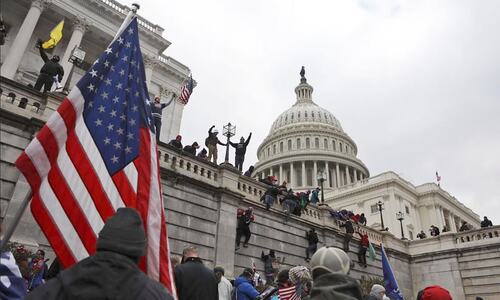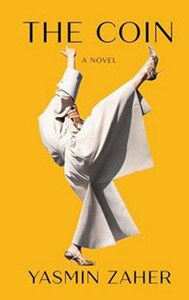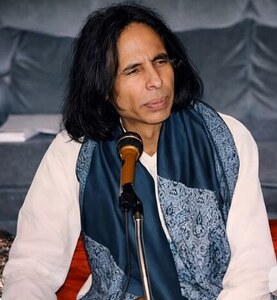Survivors: Stories from Panah
Compiled by Hilda Saeed
Edited by Arshi Ahmed-Aziz and Aliya Habib
Oxfam, Pakistan
136pp.
Gleaned from interviews conducted by journalist and activist Hilda Saeed, Survivors: Stories from Panah features 25 chapters, each described as one of the many “true stories of women who escaped a life of domestic abuse, and a shelter that made it possible.”
These ‘stories’ are, in fact, narrations of women’s lived experiences of verbal, physical and emotional abuse in intimate and family settings. The 25 women featured, one in each chapter, come from different walks of life. What threads their stories together is the systemic nature of the patriarchal violence they have all suffered, and their will to survive, fight back and escape the conditions of abuse that had come to structure their lives.
The survivors whom Saeed speaks to all have an active or past association with Panah — a shelter for women who are subjected to domestic abuse. Each story details the journey of its protagonist, following the survivor from her past life through to her arrival at Panah and the subsequent building of a new life of dignity, safety and healing.
The subject makes for a difficult and sobering read in itself, and the sheer volume of the stories impresses upon the reader the deeply embedded nature of gender-based violence carried out within the institutions of marriage and family.
In page after page, we read of women who refuse to be crushed. They come from a range of ethnic, social, cultural and professional backgrounds from across Pakistan. Yet no matter the disparity in circumstances, the pattern of abuse is almost always the same: parents who would rather see their daughter die than allow her to file for divorce, and husbands who draw on their patriarchal privilege to physically, financially and emotionally exploit their wives.
A book about the lived experiences of domestic abuse in Pakistan is a step in the right direction, but disappoints in terms of form
The first story, titled ‘Living Under Threat’, is about Nasreen, whose name has been changed to protect her identity. Nasreen’s parents arranged her marriage when she was still a child, just 15 years old. At this vulnerable age, she went to live with her husband and his family.
The first month or so of marriage passed by peaceably. However, soon her husband began to find fault with the minutest aspects of the young girl’s housework: a burnt chapati, a shirt collar that looked slightly scruffy.
Verbal taunts and insults rapidly escalated into full-blown physical assault. Nasreen endured it all for five years. But when she finally managed to use a cousin’s wedding as an excuse to visit her parents’ home and plan her escape, she was met with their dismay and disapproval at the prospect of a divorced daughter.

She refused to return to her husband’s home, while her parents remained adamantly opposed to a divorce. One night, Nasreen overheard the word ‘kari’ in a hushed conversation between her parents — karo-kari is a form of premeditated, so-called ‘honour killing’. Fearing for her life, she slipped out undetected and made her way to a court where she filed for khula [divorce initiated by a woman]. The judge sent her to Panah.
Similar stories populate the pages of Survivors, that go against the tired tropes of the long-suffering Asian woman as portrayed in mainstream television and film. The life histories recorded in this book educate readers on the ubiquity of gender-based violence within the Pakistani home, as well as women’s resilience and strength in fighting for themselves.
There is no romanticising of the image of a self-sacrificing, martyr-like female figure and the book takes a matter-of-fact, but respectful, approach to sharing their personal testimonies of agency in the face of patriarchal oppression.
There is no romanticising of the image of a self-sacrificing, martyr-like female figure.
Saeed’s careful detailing of the circumstances and social structures, other than the family, that coalesce in cases of domestic abuse is particularly instructive. For example, in the chapters ‘Searching for Justice’ and ‘Not a Bojh [Burden]’, we see how drug abuse, unemployment and poverty are all interlinked realities of working class life in Pakistan, that are in turn connected to deeply embedded structures of misogyny and patriarchal exploitation.
Take, for example, the cases of Saira, who struggled to fund her own education from class six onwards, and ultimately managed to earn a masters degree in English literature from the University of Punjab, and Nimra, who was married off at the age of 13 to a rickshaw driver. They detail how they faced threats to both their physical safety and financial survival from partners who channelled their economic frustrations into toxic masculinity and misogynistic abuse.
By presenting the life histories of ordinary women, Survivors highlights the inextinguishable spark of resistance that can persist and thrive even in the loneliest, darkest and most mundane settings. None of the women whose stories appear in the book are celebrities or prominent feminist activists, and the effort to collate and pen their struggles is an important step towards writing women’s history from below. However, the approach and format deployed poses some serious problems, with much room for reflection and improvement.
First, the book is decidedly vague in outlining its methodology. Pitched as a volume that presents “Stories from Panah”, the reader anticipates a set of narratives authored by the survivors themselves. However, as one peruses one chapter after another, it becomes clear that these ‘stories’ have been produced through a process of interviewing, paraphrasing and editing the autobiographical bent of the conversations the author had with the women.
The text also makes heavy mention of Panah’s investment into the women’s overall wellbeing, describing how in-house psychologists worked with the survivors to provide mental health support, and how the shelter arranged for women to train as beauticians or seamstresses so that they could begin to earn a living for themselves.
One wonders why similar resources could not have been invested in arranging writing workshops that would encourage the survivors to not just narrate their stories to an interviewer, but also discuss, shape and direct the way in which they would be depicted? The book makes no mention of whether such a process took place, or whether it was even considered.
While Survivors must be commended for incorporating oral testimonies into existing writing on domestic abuse in Pakistan, it is crucial that the survivors also become authors of their own history, without needing an English-speaking interlocutor.
In a related vein, the format chosen also raises questions around language politics: will all the women whose personal accounts of trauma and survival appear in the book be able to read their own life stories in English, the language of an educated elite?
The methodological confusion that plagues Survivors is augmented by the detailed information readers are given on the shelter, its board of trustees, testimonials regarding its work and glossy pictures showcasing the facilities the organisation provides. I was left wondering whether the book is a collection of oral testimonies, a series of short stories, or a donor-funded report by a non-governmental organisation (NGO).
This problem also mars the telling of the stories themselves, as the narrator often shifts abruptly between third-person description, interviewing and journalistic-style detail on, for example, the legal support that Panah continued to provide a certain survivor even after they had left the shelter.
Thus, Survivors takes a step in the right direction, but disappoints in terms of conceptualisation and form. The book is a commendable effort at spotlighting tales of extraordinary courage that testify to women’s fight against the patriarchy in their everyday lives, often completely on their own. Still, much work remains to be done to create a more sensitive, nuanced feminist approach towards writing life histories of trauma and gendered abuse.
To begin with, reflecting on one’s own positionality as the mouthpiece for these representations, scrutinising the impact of donors’ demands on NGO-led publications such as Survivors, and investing in creative processes that empower survivors to tell their own stories, in their own words, may serve as fruitful openings.
The reviewer is a post-doctoral research fellow at the Gurmani Centre for Languages and Literature, Lahore University of Management Sciences
Published in Dawn, Books & Authors, August 28th, 2022
































